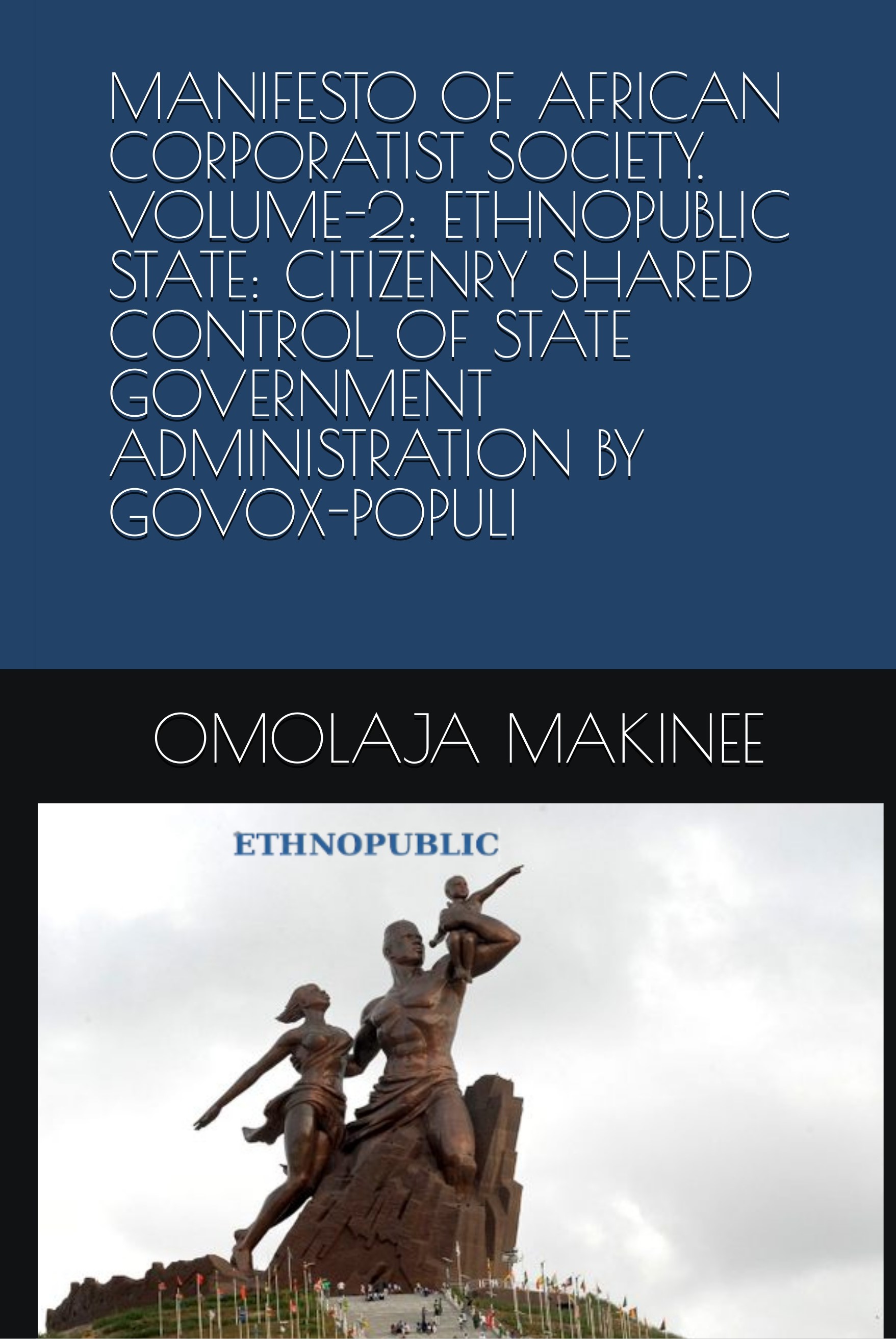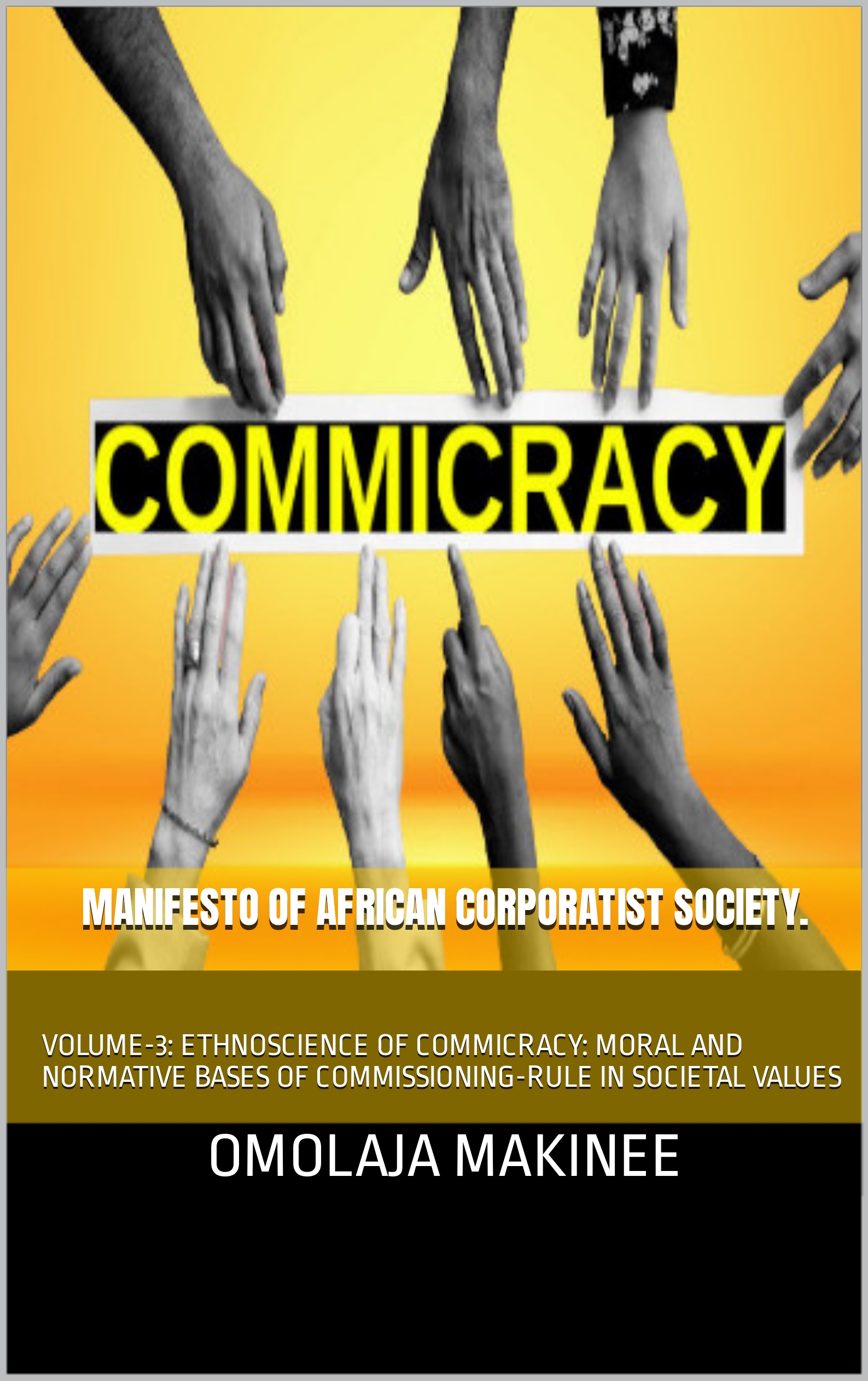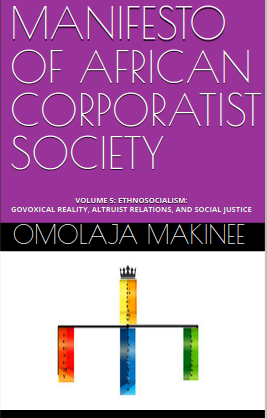Manifesto Of African Corporatist Society.
By: Omolaja Makinee
Ethnocorporatist economic system is the large-scale macro-level of the small-scale cooperative economic system which operates on a micro-level in over 10,000 different institutions of kingdoms and self-governing governments and empires in ancient Africa.
Edward Blyden (1832-1912) described African cooperative economic system as “all work for each, and each work for all“.
The theory of African ethnocorporatism is an economic system that contrasts with western-built capitalism, and its proposed to transition the collective of African economies to self-sufficiency subsistence.
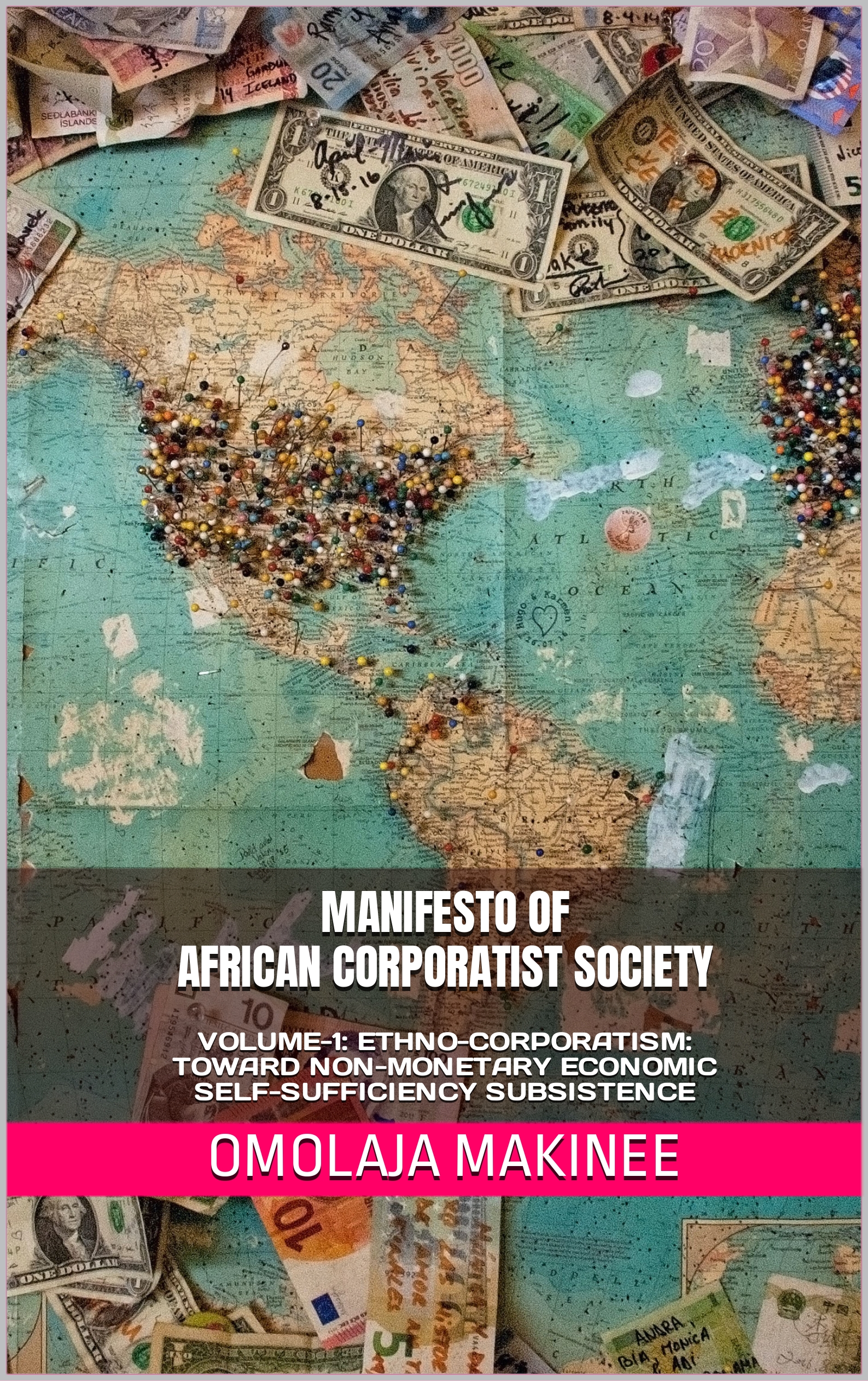 Preview Book
Preview BookVOLUME 2: ETHNOPUBLIC STATE:
CITIZENRY SHARED CONTROL OF STATE GOVERNMENT ADMINISTRATION BY GOVOX-POPULI
Ethnopublic nationalism is the macro-level to the micro-level ethnopopulist system of government headed by kings and queens practised in different variations but in the same format under the Imperial ethnocracy form of governance structure in over 10,000 different institutions of kingdoms and self-governing governments and empires in ancient Africa.
The theory of African ethnopublicanism is a system of nationalism that contrasts with western-built republicanism or republican statehood, and it is proposed to transition the collective of all the colonial divided African States into a single national body as ‘United African States’ [UAS].
VOLUME 3: ETHNOSCIENCE OF COMMICRACY:
Moral and Normative Bases of Commissioning-Rule in Societal Values
Commicracy is an horizontal organisational structure with interpersonal procedures. African commicracy is the organisational structure of ethnic communities in over 10,000 different institutions of kingdoms and self-governing governments and empires in ancient Africa. The culture of commicracy is communal with commission-rule of engagement that forms ethnic morals and traditions of all indigenous African ethnic communities practised in different variations but in the same format.
The theory of African Commicracy contrast with western-built bureaucracy, socially, economically and governmentally. Commicracy is proposed to transition the collective of African organisational structures and systems, in abolition of bureaucracy and bureaucratic morales across Africa.
Populocracy is not a new phenomenon. The term ‘Populocracy’ originates from the term ‘populism’; and populist idea is the governing tools of the primitive people since the beginning of our human existence itself – before the organised system of human society.
Populist governance of ethnocracy was practised by indigenous ancient African communities under the imperial administrative government structure with interdependent leadership rule of kings or queens with their chiefs that revolves around the day-to-day affairs of citizenry members of their community.
The theory of Populocracy contrast with western-built democracy, and it is proposed for the form of governance of the proposed ‘United African States’ [UAS].
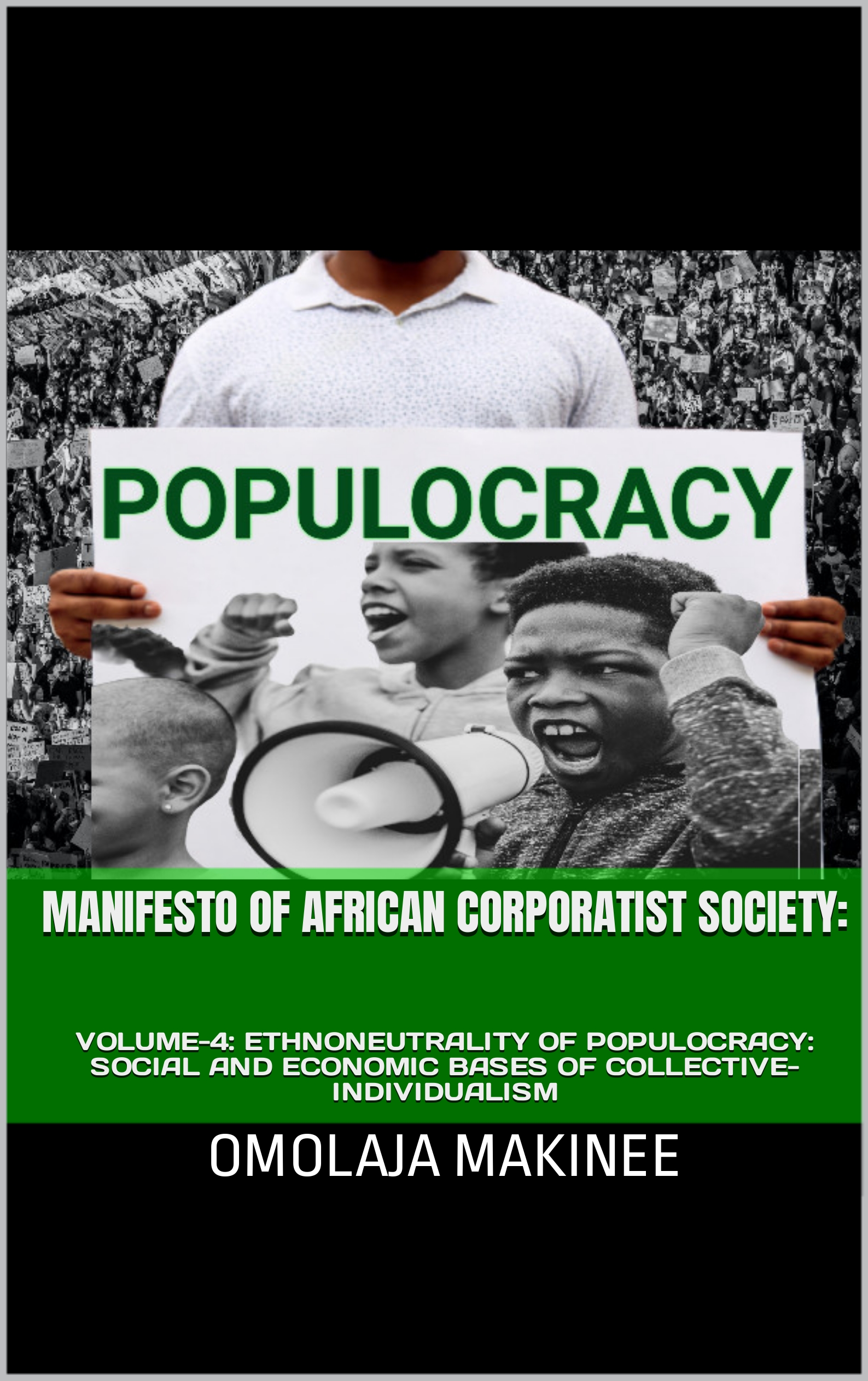 Preview Book
Preview BookVOLUME 5: ETHNOSOCIALISM:
Govoxical Reality, Altruist Relations, and Social Justice
Ethnosocialism is a socio-economic nationalism where different ethnic backgrounds or nations with different social identities united as a nation, and have shared practices of socio-economic interests
including shared governance of the day-to-day affairs of their government. It is a system of economic management that seeks to place the means of economic production, distribution and exchange under the collective control of members of the nation. This means that the economy is managed by the people for the benefit of the people, with government policy decisions made through institutionalised populocratic processes by the people.
The theory of ethnosocialism is the hopes and aspirations of our ancestors in the philosophy of Pan-African socialism, which emphasises the importance of collective ownership and control of resources, as well as the need for social justice and economic equality. It is grounded in the belief that African societies have a unique history, culture, and set of values that should be reflected in their government, economic systems, and the social lives of Africans everywhere, both in the HomeLand and in the diaspora.
